The 2020 elections are the most important elections of my lifetime, and potentially the most important in American history. Will we replace the most corrupt, bigoted, and incompetent President of our times, and his shameless congressional enablers, or will we go further down the road to authoritarianism and corporatism? That sounds melodramatic, but given what we’ve learned about Trump over the last three years, it’s not an exaggeration.
The stakes are high, so liberals need to step up their game.
This isn’t about trashing liberals. Liberals have done a lot of great things for America. At a time when all of these things were quite unpopular, liberals had enough vision, courage, and commitment to pass Social Security, Medicare, Medicaid, the minimum wage, marriage equality, civil rights, voting rights, environmental protections, and the Affordable Care Act (ACA).
But we grassroots liberals also can be also our own worst enemies. To win in 2020, we need to make five New Years resolutions to do better than we did in 2016.
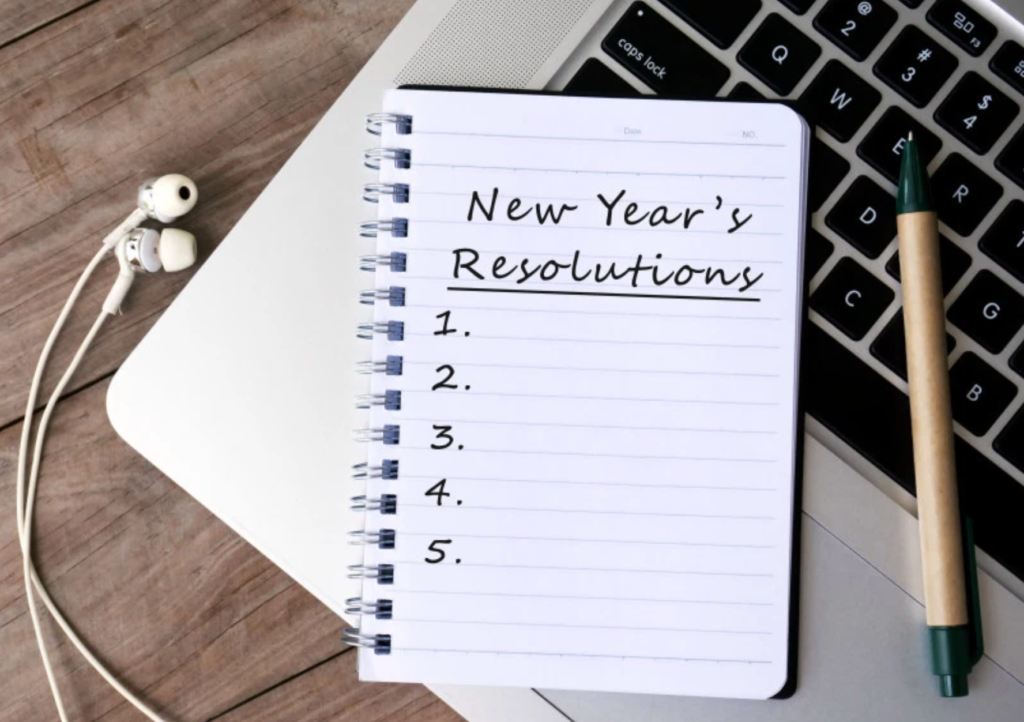
STOP THE PETTY, PERSONAL ATTACKS. With hundreds of substantive reasons to criticize Trump and his lackeys, there is no reason to stoop to snotty attacks about personal issues like the President’s complexion, hair, waistline, hand size, penis size, verbal slips, and misspellings. The same goes for personally insulting his supporters.
Among the moderate swing voters who will decide the outcome of this election, those kinds of personal shots inadvertently create sympathy for Trump and others who don’t deserve swing voters’ sympathy. I get that they are cathartic, and sometimes tongue-in-cheek. But they’re also and self-defeating in the end, and therefore self-indulgent, so liberals need to get better at taking a pass on the personal shots.
STOP THE CANNABILISM. Liberals also need to be mindful of Ronald Reagan’s 11th Commandment, “thou shall not speak ill of other Republicans.”
I understand the temptation to wage civil war. My top presidential candidate, Kamala Harris, has already dropped out of the race, and my second choice, Cory Booker, doesn’t look like he will last much beyond Iowa. Having to go to Plan C is deeply disappointing to me. Having to go to Plan D, E, F, G, H, I, J, or K, a distinct possibility in a field this large, likely will be even more disappointing to me.
In the end, I realize that I am unlikely to be in love with my Democratic Party nominee. But if I can’t be with the one I love, honey, I’ll love the one I’m with. Unless we learn something dramatically scandalous about one of the Democratic candidates in the coming months, I’m pledging to myself that I won’t trash other Democratic candidates, vote for a third party candidate, or sit out the election. For a long time, I’ve even been making monthly donations to the eventual nominee, whomever that ends up being, via the Unify or Die fund.
All liberals should make a resolution to forgo intra-party cannibalism, because it greatly increases the chances that we have four even more catastrophic years with the most corrupt, bigoted, and incompetent President of our times. That can’t happen, so we all have to suck it up and pledge to support the candidate that prevails in the nominating process.
STOP THE SHINY OBJECT CHASING. We all know that President Trump is going to do and say hundreds of things before the election that are mock-worthy and outrageous, but probably are not issues that are going to sway swing voters or motivate non-voters. Every moment we spend talking about those side issues –say, a funny golf story, a boneheaded gaffe, a stupid joke at a rally, a silly exchange with an athlete or celebrity–is a moment we’re not talking about issue differentiators that are more likely to influence voting decisions.
What Trump actions are more deserving of our focus? His giving lavish, deficit-spiking tax cuts to the wealthy. His separating young children from parents and caging them. His taking birth control and other types of reproductive health care away from women. His blocking legislation to control pharmaceutical prices. His cowardly refusal to cross the NRA to support common sense gun safety laws. His erratic Russian-friendly foreign policy decisions in dangerous places like Iran, Syria, the Ukraine, and North Korea. His repeated attempts to repeal Affordable Care Act protections, such as preexisting condition protections for 133 million Americans.
Polls show those kinds of issues work against Trump with swing voters and non-voters, so those kinds of issues should be the primary focus of conversations at the break room, bar, barbeque, or online chat.
With such a steady stream of Trump’s outrages, it’s difficult to not take the bait from the ever-outrageous tweet stream. I’m far from perfect on this front. But we liberals have to get better about focusing on the issues that matter the most to swing voters and non-voters, and that means shrugging off a lot of the side issues.
FOCUS ON ROOT CAUSES. When deciding how to spend time and resources, liberals should also consider focusing on the root causes of Trump’s electoral success. For instance, rather than only supporting individual candidates, consider supporting groups like Stacey Abrams’ Fair Fight 2020 and the ACLU. Those groups are battling Republicans’ relentless voter suppression efforts aimed at people of color, which threaten to swing close elections to Trump and his political toadies now and for decades to come.
Ensuring that every vote counts and voting is easier will help progressive local, state and federal candidates up and down the ballot. It will help preserve our representative democracy for future generations. Supporting those groups isn’t as obvious to most of us as supporting parties and candidates, but it’s every bit as important.
SPEAK OUT EARLY AND OFTEN. Speaking out against Trump and Republicans in person and on social media is frowned upon by Americans who are “non-political,” ignorant, and/or in denial about what is happening to America. That can make speaking out about Trump unpleasant and exhausting. Goodness knows, no one relishes being called, gasp, “political,” and being accosted by trolls.
But in America today, we have politicians who are all too willing to separate brown-skinned kids from their parents and put them cages indefinitely. We have politicians trying to repeal health protections for 133 million Americans. We have a party that gave a massive, deficit-ballooning tax gift to the wealthiest 1% at a time when we have the worst income inequality since 1928 and record deficits. We have a President taking birth control and other reproductive rights away from women. If we don’t vote out this crew, we could easily have much worse developments on the horizon in a second, even more unhinged Trump term.
All of which is to say one person’s “politics” is another person’s life, livelihood, and rights. A while back, writer Naomi Shulman helped put this issue in proper perspective for me:
“Nice people made the best Nazis. My mother was born in Munich in 1934, and spent her childhood in Nazi Germany surrounded by nice people who refused to make waves. When things got ugly, the people my mother lived alongside chose not to focus on “politics,” instead busying themselves with happier things. They were lovely, kind people who turned their heads as their neighbors were dragged away.”
I’m not saying liberals have be jerks and nags to their friends and relatives. We don’t have to be the turd in the punch bowl. In most cases, we should be calm, respectful, factual and measured when we speak out, even when the respect isn’t deserved and returned, because that’s usually the best way to win hearts, minds, and votes.
But we do have to speak out, because silence implies consent. As Martin Luther King famously said of another movement in another time:
“In the end, we will remember not the words of our enemies, but the silence of our friends.”
The same is true of the movement to save America from Donald Trump and his Republican enablers. I’m about as conflict averse as they come, but unfortunately that excuse just is not going to cut it with so many lives hanging in the balance.
So my fellow liberals, this New Years Eve raise a glass of your favorite truth serum, and make some challenging resolutions that nudge you outside of your comfort zone. Your country needs you now more than ever.


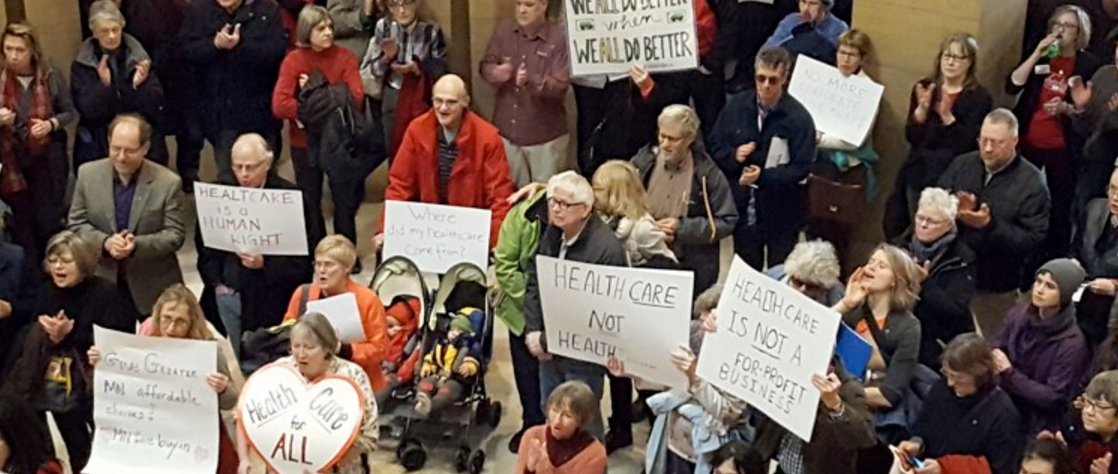
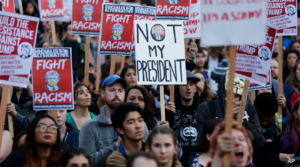 Donald Trump is my President.
Donald Trump is my President.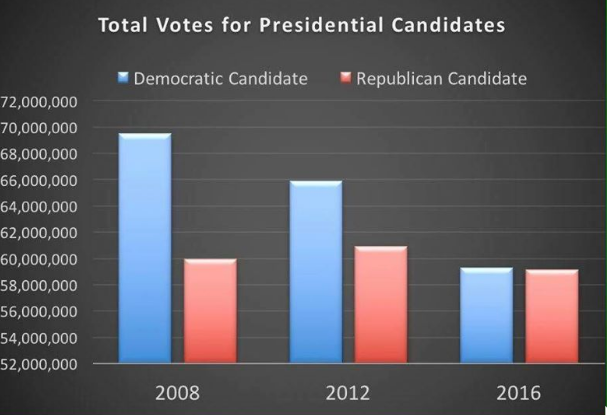
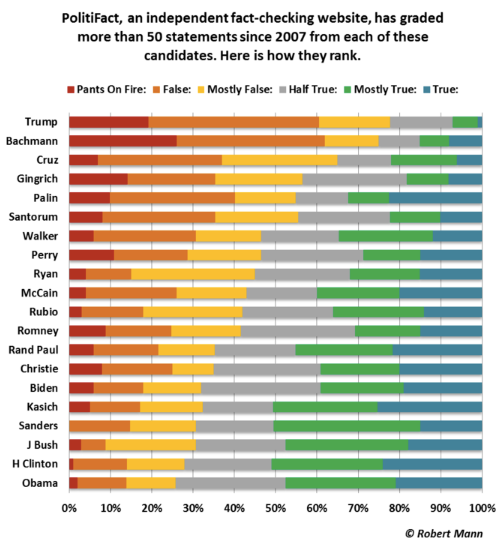
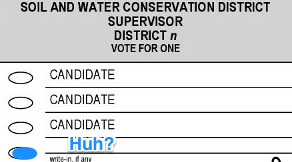 For all I know, I may have just voted for a creationist to select my kids’ science curricula, or a reckless corporate polluter to set environmental protections in my water conservation district. But it’s not my fault.
For all I know, I may have just voted for a creationist to select my kids’ science curricula, or a reckless corporate polluter to set environmental protections in my water conservation district. But it’s not my fault.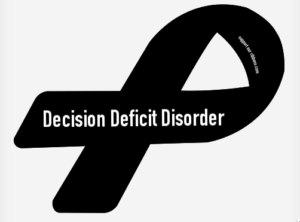 Washington, DC — Just as the holiday season can be difficult for those who have recently lost loved ones, election time is a horrific time for those suffering from a little discussed condition known as Decision Deficit Disorder (DDD).
Washington, DC — Just as the holiday season can be difficult for those who have recently lost loved ones, election time is a horrific time for those suffering from a little discussed condition known as Decision Deficit Disorder (DDD).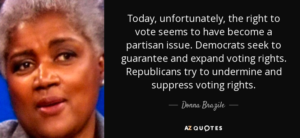 When it comes to the Minnesota DFL’s attempt to bar Donald Trump’s name from appearing on Minnesota ballots, the party is making a mistake by focusing on the could versus the should.
When it comes to the Minnesota DFL’s attempt to bar Donald Trump’s name from appearing on Minnesota ballots, the party is making a mistake by focusing on the could versus the should.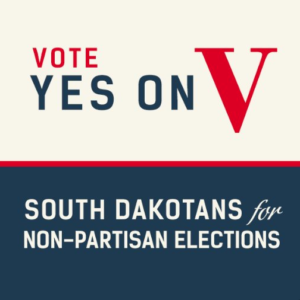 When I heard about the constitutional amendment on the South Dakota ballot to make all
When I heard about the constitutional amendment on the South Dakota ballot to make all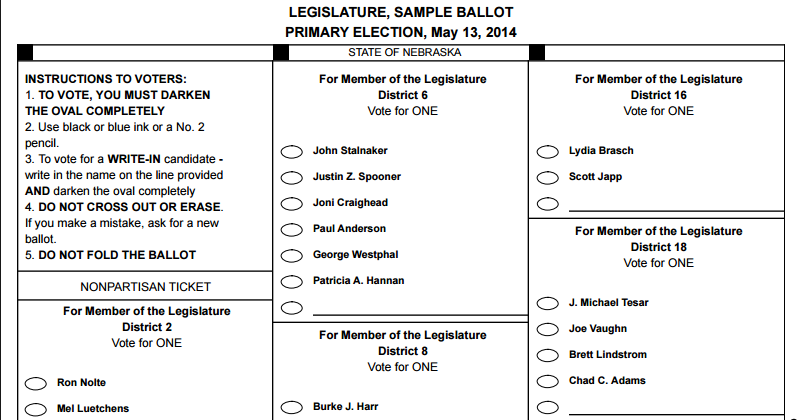
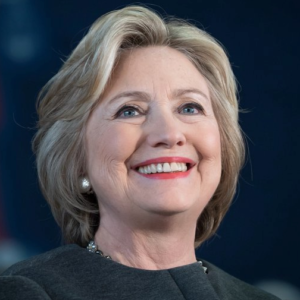 Though I’m a solid Hillary Clinton supporter, I don’t particularly relish defending her at water coolers, dinner tables and social media venues. When defending Hillary Clinton to those who hoped for more, I often feel like I do when defending the Affordable Care Act (ACA) to those who hoped for more.
Though I’m a solid Hillary Clinton supporter, I don’t particularly relish defending her at water coolers, dinner tables and social media venues. When defending Hillary Clinton to those who hoped for more, I often feel like I do when defending the Affordable Care Act (ACA) to those who hoped for more.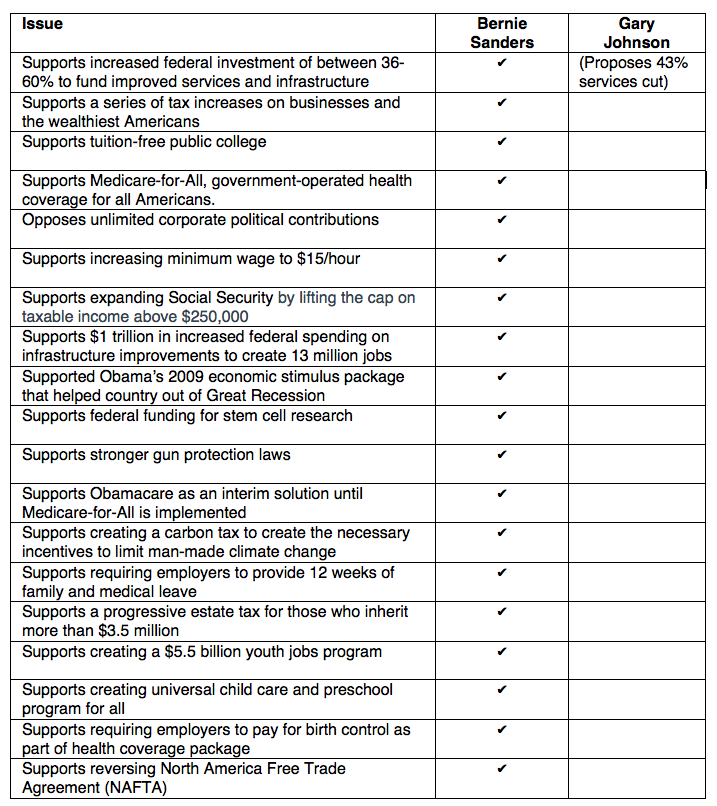
 In the era of Donald Trump and social media, these two statements haunt me.
In the era of Donald Trump and social media, these two statements haunt me.
 So communications strategists typically identify a small number of messages or themes that they strive to repeat and stress above all the others. They’re often called “key messages,” or “frames.”
So communications strategists typically identify a small number of messages or themes that they strive to repeat and stress above all the others. They’re often called “key messages,” or “frames.”
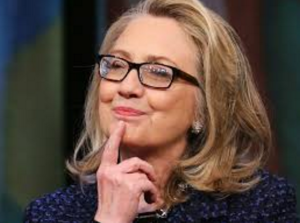 As a Sanders supporter, I concede there are many valid reasons to worry about him. But one of the biggest “go-to” criticisms used by Senator Hillary Clinton and her supporters strikes me as simplistic and overblown. More importantly, her focus on that issue makes me worry that she perhaps doesn’t truly understand what it takes to be an effective general election candidate and President.
As a Sanders supporter, I concede there are many valid reasons to worry about him. But one of the biggest “go-to” criticisms used by Senator Hillary Clinton and her supporters strikes me as simplistic and overblown. More importantly, her focus on that issue makes me worry that she perhaps doesn’t truly understand what it takes to be an effective general election candidate and President.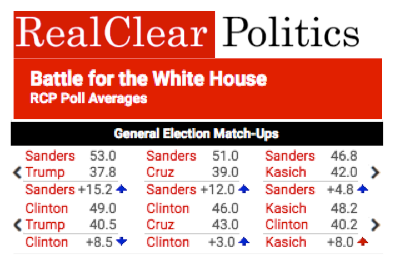
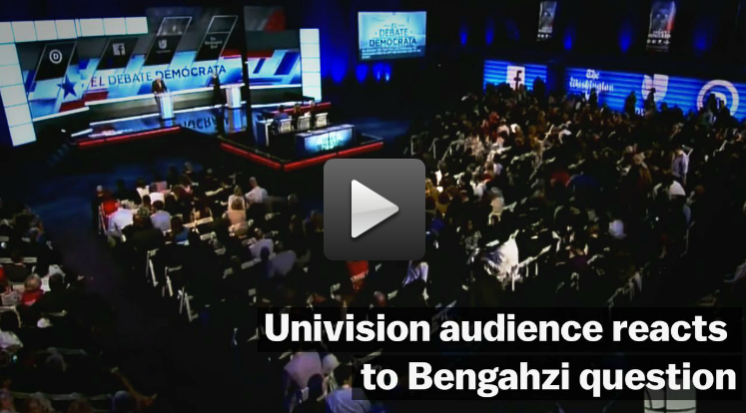
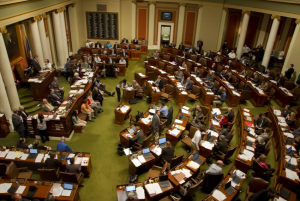 DFL state legislators are an awfully unpopular bunch. According to an August 2015 Public Policy Polling (PPP)
DFL state legislators are an awfully unpopular bunch. According to an August 2015 Public Policy Polling (PPP) 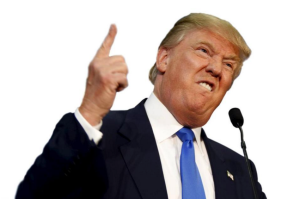 Donald Trump and Hillary Clinton are now pretty assured of winning their party’s nomination for president, both because they are far ahead and because it seems unlikely either will implode with their respective bases. They have both had fundamental vulnerabilities exposed, yet they both continue to have a sufficient amount of support to win their nominations.
Donald Trump and Hillary Clinton are now pretty assured of winning their party’s nomination for president, both because they are far ahead and because it seems unlikely either will implode with their respective bases. They have both had fundamental vulnerabilities exposed, yet they both continue to have a sufficient amount of support to win their nominations.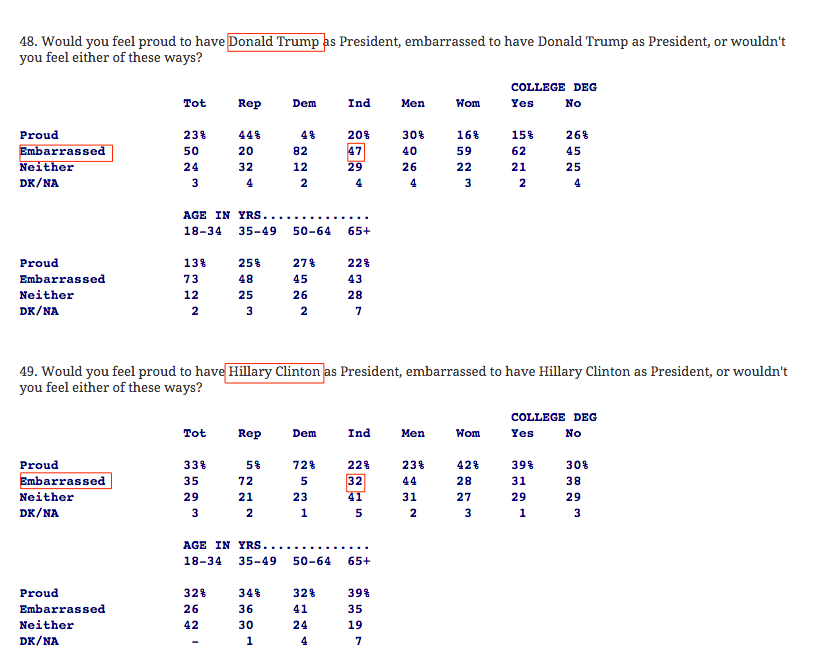
 When presidential candidate Bernie Sanders explains why Americans shouldn’t fear his “democratic socialism,” he usually
When presidential candidate Bernie Sanders explains why Americans shouldn’t fear his “democratic socialism,” he usually 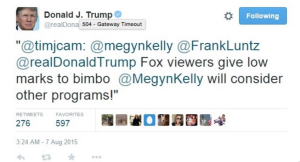 Maybe that’s because reporters are worried bullying candidates will give them the Megyn Kelly Treatment/Rebecca Quick Treatment. Maybe it’s because reporters don’t take the time to learn policy issues. Maybe it’s because reporters don’t respect voters’ intelligence enough to think that they will care about, or understand, policy issues
Maybe that’s because reporters are worried bullying candidates will give them the Megyn Kelly Treatment/Rebecca Quick Treatment. Maybe it’s because reporters don’t take the time to learn policy issues. Maybe it’s because reporters don’t respect voters’ intelligence enough to think that they will care about, or understand, policy issues